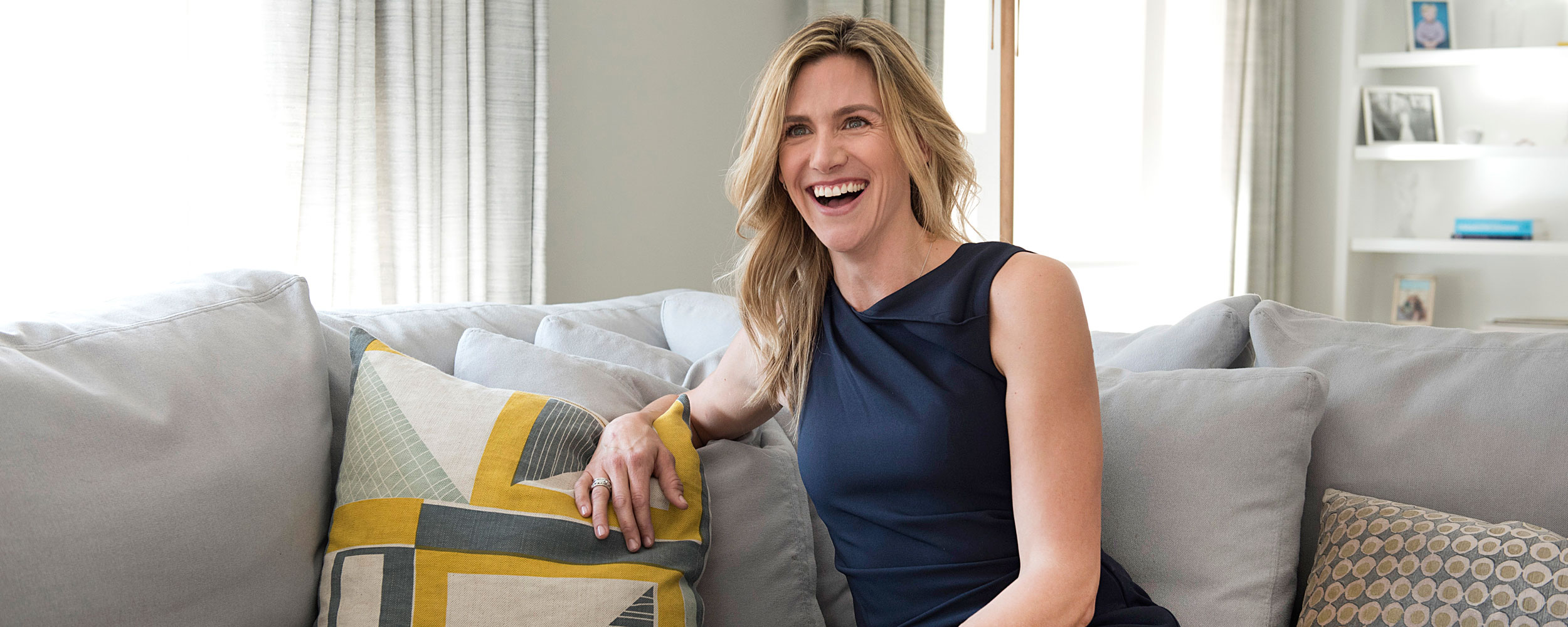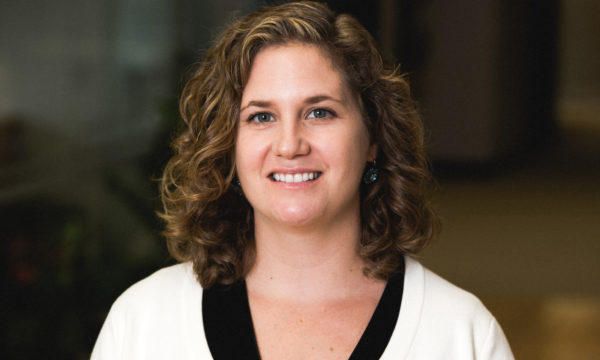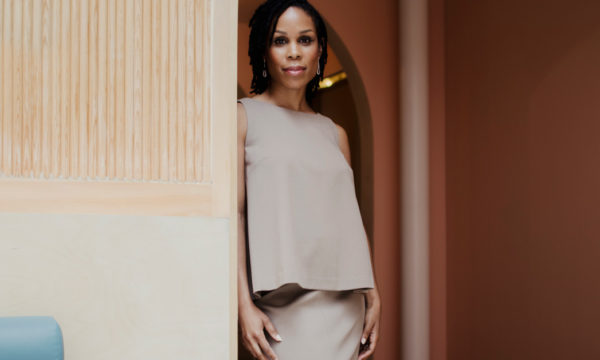Health Care, Made Better: Dr. Jennifer Kherani Is on the Case
April 15, 2017 | Filed in: Woman of the Week
In 2015, Dr. Jennifer Kherani—then an attending emergency medicine physician at New York-Presbyterian Hospital—was having a casual discussion with her husband and another friend about the state of health care (you know, a typical Saturday afternoon) when they hit upon an idea: What if there was a company that connected patients with cutting-edge medical specialists? Better yet, what if they created that company? “It went pretty quickly from there,” says Jen. Now the medical director of Summus (her husband, Dr. Aftab Kherani, is the co-founder and chairman, and their friend, Julian Flannery, is the co-founder and CEO), Jen works with physicians and patients around the world. Here, she talks about her experiences in the emergency room, the problem with Dr. Google, and meeting her husband at Dr. Oz’s lab (during a heart transplant—no joke).
I DIDN’T KNOW that I wanted to do medicine until my mid-twenties, which is fairly unusual among doctors. I didn’t do my pre-med requisites in college; I studied behavioral neuroscience. After I graduated, I got a job in sales for a pharmaceutical company. I disliked it so much that I left after six months.
I WORKED AS A WAITRESS at Planet Hollywood in Times Square, of all places, while I was trying to figure out my next steps. Then I randomly went on a medical mission in Guatemala. I volunteered in a mobile clinic that went into the mountains with a trailer filled with medical supplies to treat people on the road. It was an incredible experience, and I totally fell in love with it. When I came back, I got a job at a lab at Columbia—it was Dr. Mehmet Oz’s lab, actually—and did my pre-med classes in the afternoons. Then I went to med school. So, I’m a bit atypical—I had a little more life experience under my belt before I went into medicine, but once I started, I was hooked.
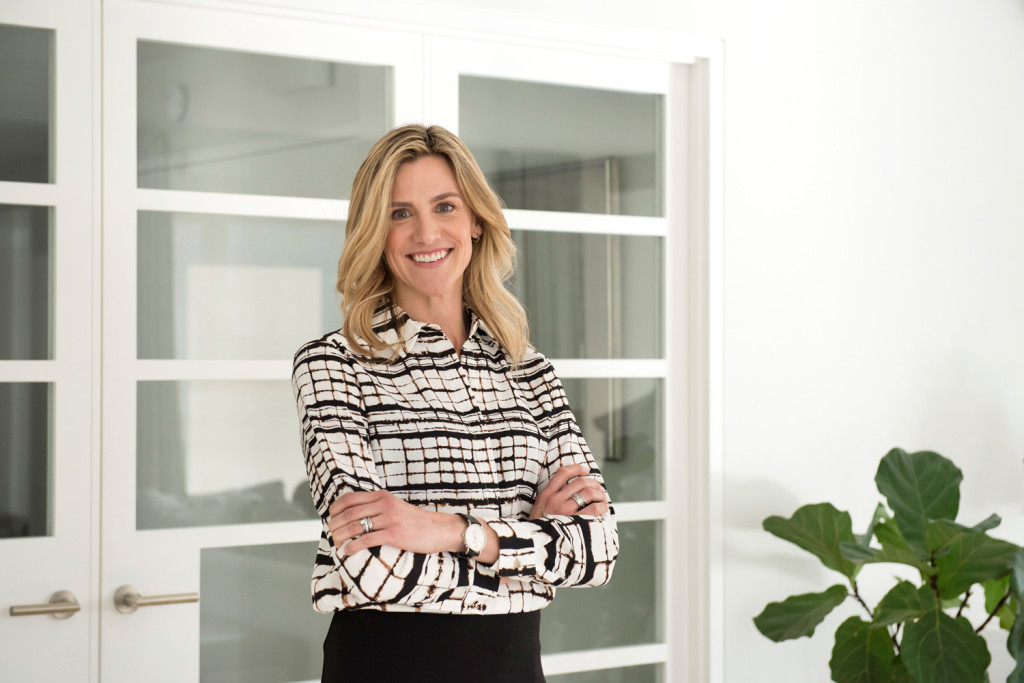
Jen wears the Lagarde 2.0 shirt in trestle with the Eldridge skirt.
I MET MY HUSBAND at Dr. Oz’s lab—during a heart transplant, actually, because we were doing cardiac research. Ironically, my husband took the opposite approach from me: He went straight from undergrad to med school to his surgery residency, but then he left medicine and went into private equity. He always says he went into medicine to find me, and I took my roundabout route to find him. We crossed paths during our short overlapping period. Our friends joke that we’re like yin and yang—he and I couldn’t be more different in personalities, culture, and where we came from. My family is from Long Island, and his parents are from India, for instance. But we complement each other. Being with him added an entirely new dimension to my experience as a medical student, as a resident, and even as an attending. We could always have honest and wide-ranging conversations about everything from the emotional toll of a hard day in surgery to the intellectual pursuit of reading and dissecting a paper.
I DECIDED TO GO INTO EMERGENCY MEDICINE because I love being with patients, and I still do. I definitely had moments in my first year of residency that were very humbling. The first time you have to tell a family member that their loved one has died—I will never forget a single person that I had to tell. Those moments bring a new spin to everything you do, in and outside the workplace. It changed me as a person. You feel very exposed.
I HAD MY FIRST SON when I was in residency. I front-loaded the harder rotations, but I was still working when I was 41 weeks pregnant. You only get six weeks of leave, unless you want to delay graduation. After my son was born, my mom and my mother-in-law came and stayed with us; they would basically trade months. Luckily, we were in hospital housing at the time, so I could pop home during the day when I needed to. Family had a lot to do with how I chose my post-residency career, and even the trajectory for Summus. When I was still working at the hospital, I did night shifts so that I could be with my kids during the day.
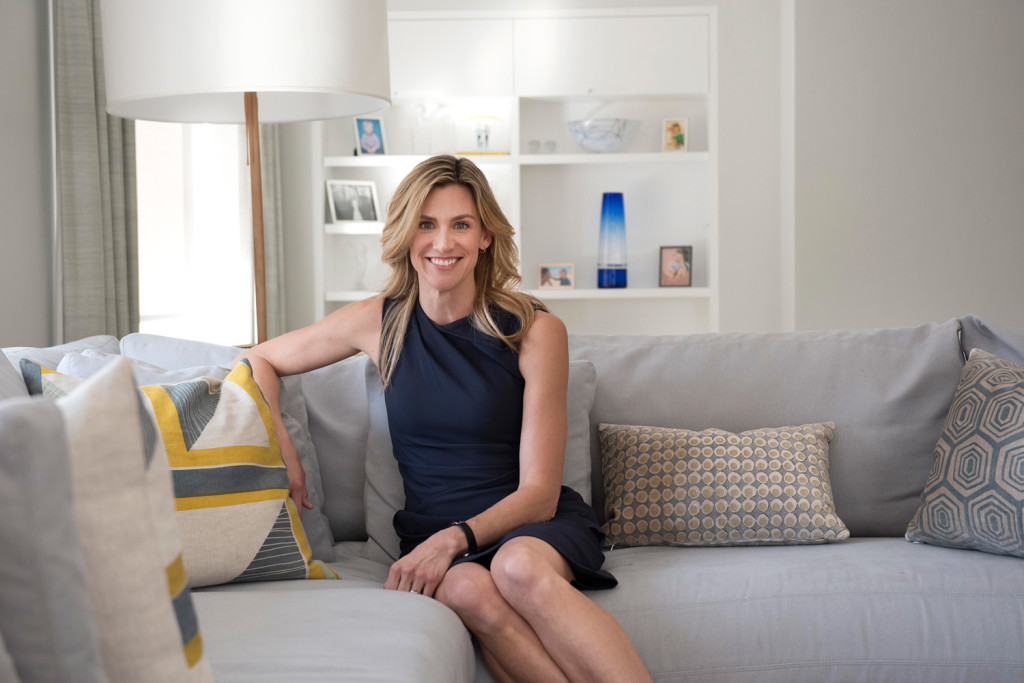
Jen wears the Alex 2.0 dress in midnight blue.
WORKING IN THE EMERGENCY ROOM puts you face-to-face with the most pressing issues in the health care system, and one of the biggest ones I saw was that people would come in because they had no other place to go. They’d arrive at the emergency room with these huge files of their medical reports, and they were totally lost. It used to be that there was a hub and spoke—your primary care doctor was your hub, and they’d send you out to the spokes, the specialists. Now, the insurance system is set up in a way that squeezes out primary care doctors. Medical students don’t want to go into primary care anymore, because you can’t stay afloat and pay off your debt from school and support your family; instead, everyone’s specializing. As a result, patients have to manage their own health care. And asking Dr. Google can be great, because he is very thorough, but he doesn’t synthesize things for you and point you in the right direction.
ONE NIGHT WHEN I WAS WORKING, a woman came into the emergency room at 4:00 a.m. with a whole bag of medicine. Her complaint was, “I don’t know what to take, and I don’t know why.” I had a number of moments like that when I thought, “There just has to be a better way to do this.” I became fixated on changing health care for people—not only their exposure to it, but potentially even its outcome.
THE CONCEPT FOR SUMMUS WAS BORN, as I think many good ideas are, during a conversation between friends. Then it evolved to a realization that the three of us—my husband, Julian Flannery, and I—had complementary talents and life experiences. I am an emergency physician and had a drive to “fix” health care. Julian is our CEO, and he used to be at the Gerson Lehman Group, which puts together high-level professionals to speak about topics to make informed decisions. And then my husband went from surgery into private equity, where he dealt with a lot of health care investment. So we were well-qualified for developing a new way to navigate the space.
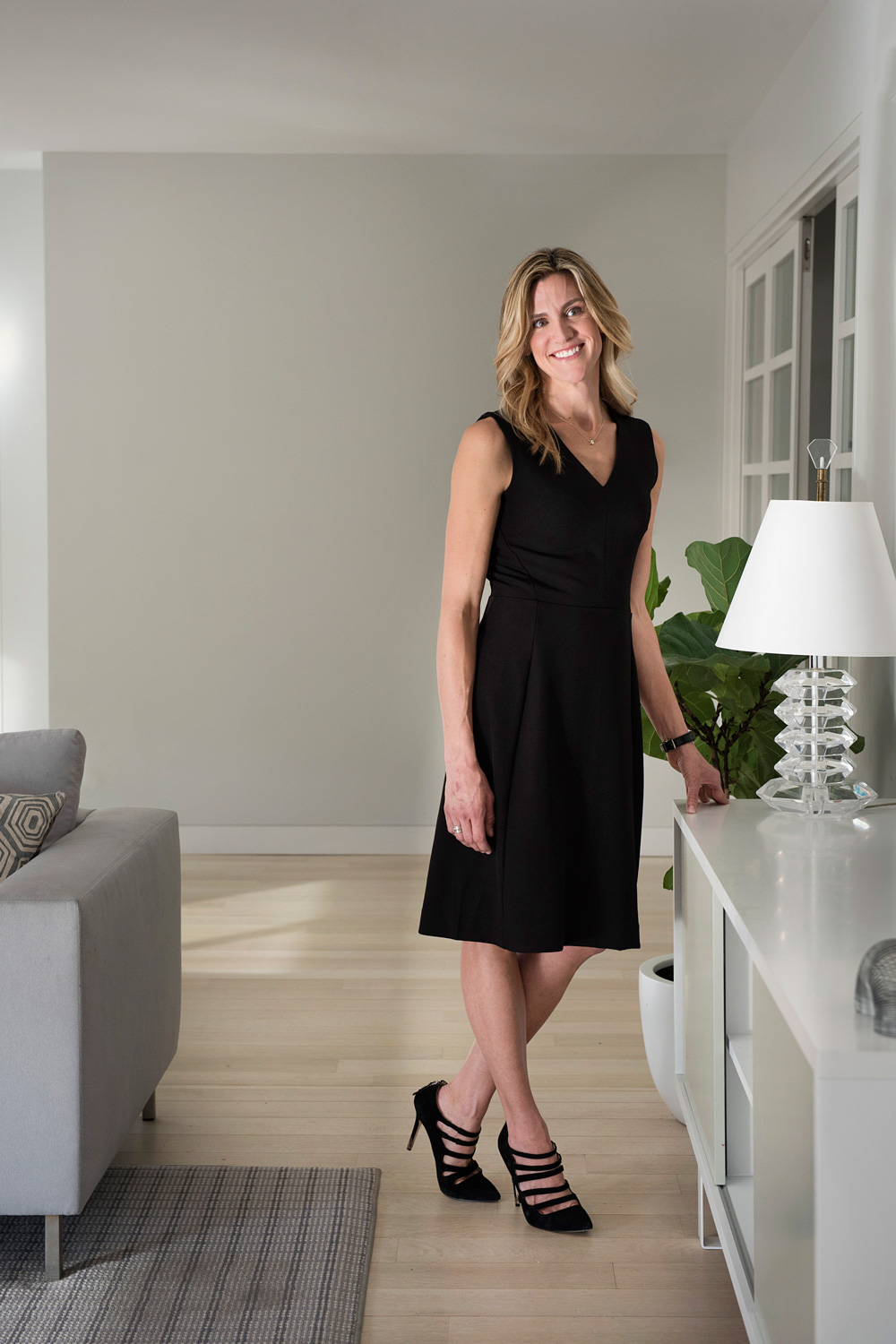
Jen wears the Annie dress in black.
THE GOAL OF OUR COMPANY is to educate and empower patients so they can take full advantage of the health care available to them. People come to us when they have a diagnosis, and then we help to bridge the gaps between all the parties who need to stay informed, as well as new specialists who could help them. If you have the leading specialist for pancreatic cancer in City A, and you have a concerned son in City B, and if you’re the parent with a new diagnosis in City C, we can coordinate a collective, educational discussion without anyone traveling an inch. We want to teach people how to use their health care in a smart and efficient way. We’re informing them of their treatment options, and connecting them with the treatment providers that are on the forefront of developing that field, so that they have up-to-date knowledge and not just a synopsis article from 10 years ago that they found online.
ONCE WE SAW WHAT WE COULD ACCOMPLISH with Summus, there was no way not to do it. It was something that could be ours, and that we could build together from the bottom up. It really drives me. It has also allowed for a better work-life balance. Sometimes I work late, of course, but it’s not like a night shift, when my husband and I were like ships crossing—he would come home from work as I would be leaving. Now I get to have dinner with my family.
I KNOW IT’S A CLICHÉ to say this, but my children and family are my axis. My three- and five-year-olds love to help me cook almost every night. I mainly make Indian food; my mother-in-law was kind enough to teach me. She has incredible patience in the kitchen. When we started, I was very recipe-oriented—like, “half a cup of this, half a cup of that.” I’d ask her how much of something to use, and she would say, “You put in enough.” I would say, “But I don’t know what enough is.” Now I get it—I just look at it and I know it’s enough.
Photographs by Liz Clayman.





